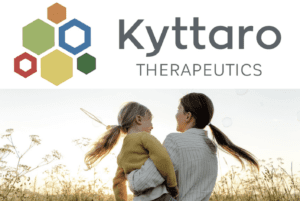
Weekly Roundup of COVID-19 Progress From T-Cell to Microbiome Therapies and FDA Emergency Use Applications
April 21, 2020
Organizations from across the BioHealth Capital Region (BCHR) continue to pivot research, development and material production efforts to aid in the fight against COVID-19.
A steady stream of news is emerging about life science organizations that are investing time, finances and human capital to create better PCR and antibody testing, make progress on a COVID-19 vaccine, prepare vaccine manufacturing capacity and deliver personal protective equipment, testing kits, reagents and other materials required to beat back the coronavirus pandemic.
This ongoing COVID-19 work is being done in addition to each company’s respective work on their own research, development, commercialization and distribution of drug candidates, approved products and service offerings.
Here’s a quick roundup of BHRC organizations that are making significant contributions to the fight against the coronavirus pandemic.
Children’s National Hospital
Face Shields Delivered to Children’s Clinical Team Via Collaborative Effort
Another successful Children’s National “DIY” initiative was to address personal protection equipment (PPE) needs of clinical staff with the help of innovators from the hospital’s Sheikh Zayed Institute for Pediatric Surgical Innovation.
Dr. Kolaleh Eskandanian, Chief Innovation Officer of the hospital, reached out to longtime innovation partners, Georgia Tech University and the Global Center for Medical Innovation (GCMI) to use GCMI’s design to fabricate, test and produce their OSHA-approved face shield design to meet an immediate clinical need. The shields are worn over the primary face mask as an additional layer of protection from COVID-19 infection.
The institute’s engineers, Justin Opfermann and Paige Mass, tested two different approved face shield designs before deploying the face shields. Clinicians tried on and provided input on their preferences during a quick pilot phase. After the test phase, the hospital made final design decisions and did an initial production of 150 masks with the available supplies. In addition, the institute team also made a stand-up, tri fold acrylic shield for emergency room nurses to give clinicians added protection from potential infection while triaging patients.
Additional face shields are also being provided to Children’s National by GCMI and other ISO-certified production facilities.
Microbiome Research Could Be Key to Preventing Severe Coronavirus Disease
Meanwhile, laboratory research to find solutions is undergoing. Dr. Eric Vilain’s lab is one of several Children’s National labs pursuing vital information on the COVID-19 virus. Dr. Vilain’s research is focused on the microbiome’s potential to prevent more serious coronavirus impacts. He is investigating if the microbiome in the human nasal tract acts as a defensive shield that can hold the disease in the upper respiratory tract where symptoms tend to be milder; this could prevent the progression of the disease to the lower respiratory tract, which can result in more severe disease and death.
As people age, the microbiome becomes less diverse, which makes older individuals more susceptible to viral infections. Conversely, a stronger microbiome in younger people could be a reason the young are more resilient and less likely to die from COVID-19.
“Given the magnitude and urgency of the COVID-19 pandemic, collaboration is essential at all levels, locally to globally, if we are to meet this challenge. We must share what we learn quickly so that our collective knowledge grows exponentially, helping us to devise new ways to contain the infection, improve treatment and eventually find a vaccine,” says Dr. Eric Vilain, Director, Center for Genetic Medicine Research at Children’s National Hospital.
“Collaboration also fuels creativity because sharing different ideas and approaches to the problem sparks new ways of thinking about it,” he added.
Dr. Vilain and his team at the Center for Genetic Medical Research will investigate samples from 50 asymptomatic children, 50 asymptomatic adults and 50 symptomatic adults collected at Children’s National Hospital. The team will deploy meta-genomic sequencing technology to determine if asymptomatic children and asymptomatic adults share microbiome characteristics. The hope is that this research will be able to be used in COVID-19 nasal spray clinical trials aimed at preventing advanced COVID-19 disease. Dr. Vilain is currently seeking funding to explore his compelling and promising hypothesis.
Children’s Also Exploring T-Cell Immunity to Fight COVID-19
Dr. Cath Bollard’s lab is investigating T-Cell immunity as a potential pathway to a COVID-19 therapy.
T-Cell immunity is known to be critical for antiviral defense. Adoptive immunotherapy with allogeneic virus-specific T-Cells has been highly successful in combating viral infections in cancer patients and for the treatment of virus-associated cancers. Dr. Bollard’s lab is using its T-Cell experience to develop an “off-the-shelf”, virus specific T-Cell therapeutic to be used as a potential COVID-19 therapy.
Integrated Biotherapeutics Pivoting to Aid COVID-19 Fight
Integrated BioTherapeutics, Inc. (IBT), located in Rockville, Maryland is a biotechnology company focused on the discovery of novel vaccines and therapeutics for emerging infectious diseases. IBT has more than a decade of experience in developing bacterial and viral infection treatments; over that time the company has built very close working relationships with NIH/NIAID, the National Cancer Institute (NCI), the Department of Defense (DOD) and the United States Army Medical Research Institute of Infectious Diseases (USAMRIID).
IBT is currently developing a vaccine for MRSA, is actively working on a potential monoclonal antibody therapy for Marburg virus diseases and has collaborated with private industry and government on critical EBOLA therapy development efforts. The company also has a Contract Research Operation (CRO) arm called IBT Bioservices. Both sides of the house are currently leveraging their product development and research services expertise to do their part in the fight against COVID-19 and other infectious diseases.
On the development front, IBT is in the very early stages of approaching NIH and the government to pull together a large COVID-19 vaccine program with other international collaborators. This process is currently in the feasibility stage.
On the CRO side of the company, IBT Bioservices has pivoted to working on generating some of the research tools for COVID-19, including screening and testing for companies that want to test their products against COVID-19.
“We are generating pseudotype viruses that look like coronavirus but internally they are not. They enter the cells the way the coronavirus would enter the cells and if you have a drug candidate or serum that you want to test, using the pseudotype virus has fewer safety requirements and is much faster. This is called a neutralization assay, which can determine what agents can neutralize a virus using a pseudotype system,” stated Dr. M. Javad Aman, President and Chief Science Officer at IBT.
“We are developing this method to identify candidates for therapeutic intervention and, in some cases, can be used to develop a test that identifies antibodies that can most effectively neutralize the coronavirus,” he added.
IBT Bioservices also produces reagents used for COVID-19 testing. The neutralization assay service and reagent programs are set to launch in the near future.
Amarex Clinical Research, LLC, an NSF International Company
Germantown, Maryland’s Amarex Clinical Research, LLC, a full service Clinical Research Organization (CRO), announced on April 2nd that it had assisted with the completion of five rush COVID-19-related submissions to the Food and Drug Administration (FDA).
In early March, Amarex made a rush submission to the FDA for an emergency use Investigational New Drug (IND) to add COVID-19 to the indication list for CytoDyn’s monoclonal antibody product, Leronlimab. Amarex is CytoDyn’s CRO partner for the development of Leronlimab, which is currently being tested for HIV infection and oncology indications. The drug has shown some potential to moderate the “cytokine storm” that occurs in some COVID-19 patients. The company received FDA approval for emergency use of Leronlimab in “extremely ill COVID-19 patients.” The trials reported positive results in moderating the hyper immune response, or “cytokine storm” in four patients. According to a recent Amarex press release, 10 patients had received the drug as of April 1.
At the end of March, Amarex prepared the submission for several other COVID-19 FDA submissions. On March 30, the FDA approved a submission for a Phase II trial for Leronlimab for moderately ill COVID-19 patients. And on April 1, CytoDyn, with assistance from Amarex, filed an IND amendment submission to the FDA “…for a protocol to treat severely ill COVID-19 patients with Leronlimab where the primary endpoint is mortality rate at two weeks.”
Amarex also executed submissions for use of a medical device and a diagnostic test for COVID-19. The collaboration submitted a rush request for Investigational Device Exemption (IDE) for a device that had been tested for another indication. The diagnostic test, a PCR-based IVD for the rapid detection of the coronavirus (SARS-CoV-2), was submitted to the FDA for an Emergency Use Authorization (EUA).
Both the IDE and PCR submissions are pending FDA approval as of the writing of this story.
- About the Author
- Latest Posts
Steve brings nearly twenty years of experience in marketing and content creation to the WorkForce Genetics team. He loves writing engaging content and working with partners, companies, and individuals to share their unique stories and showcase their work. Steve holds a BA in English from Providence College and an MA in American Literature from Montclair State University. He lives in Frederick, Maryland with his wife, two sons, and the family dog.






